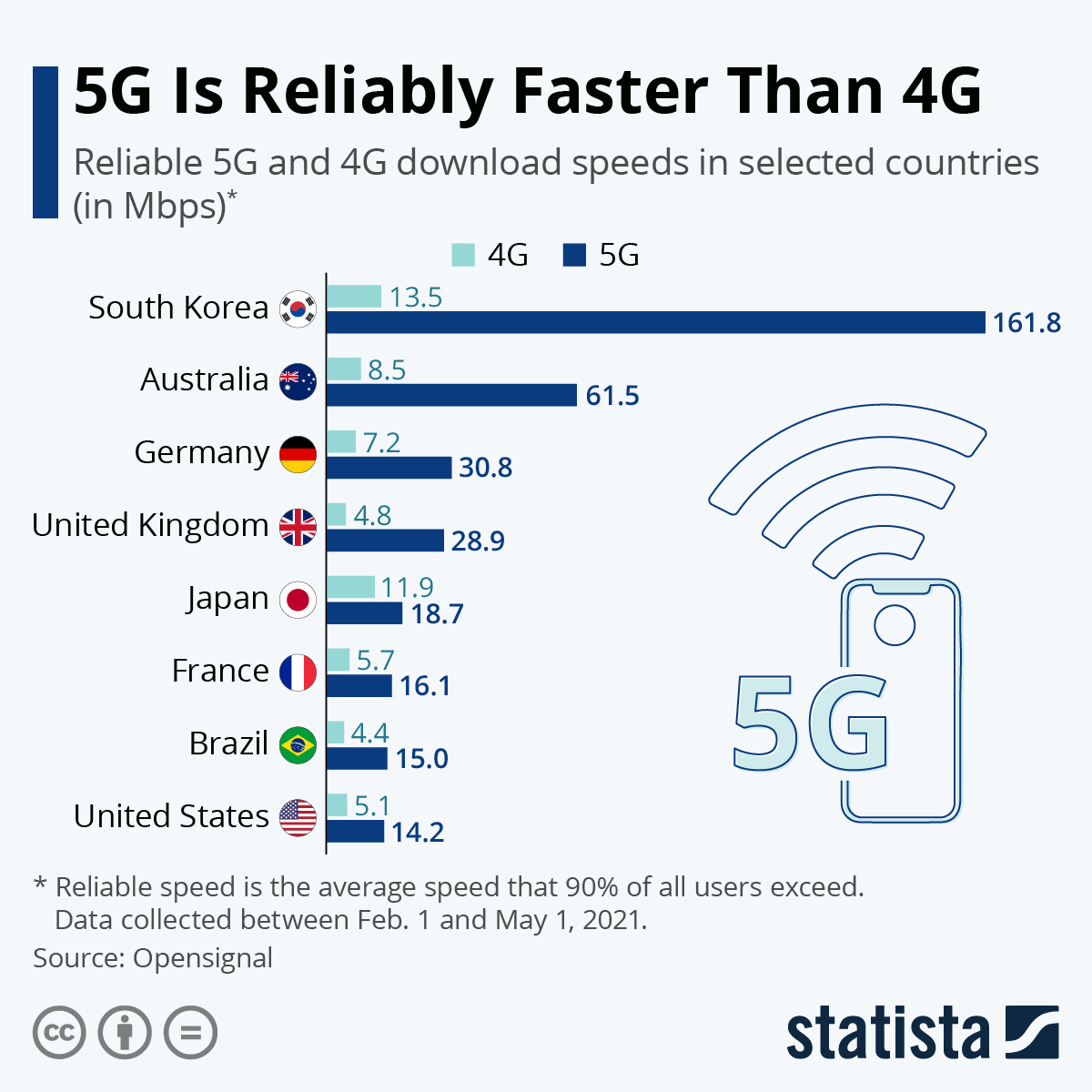With peak download speeds north of 500 Mbps, 5G promises to resolve any speed issues for smartphone users once and for all. But does the new technology really put an end to buffering video streams and painfully slow downloads? To find out how reliable 5G’s speed advantage is, mobile network specialist Opensignal has looked at “reliable download speed”, i.e. the average download speed that 90 percent of a country’s users exceed, gauging the real-world advantage of 5G over 4G.
And while the speeds reliably reached by 5G users are significantly lower than peak or even average download speeds, they are still consistently and significantly higher than the speeds reliably reached on 4G connections. On average, the reliable 5G speed was more than 7 times as fast as the 4G speed across the 20 countries included in the study.
Interestingly, the study also reveals the huge differences in network speeds across different countries. While 90 percent of South Korean users enjoy average download speeds above 161.8 Mbps, the reliable 5G speed in the U.S. is only fractionally higher than South Korea’s 4G speed at 14.2 (vs. 13.5). That is not to say that U.S. 5G users don’t see download speeds much faster than that – the average ranges from 47.7 to 71.3 Mbps depending on the provider – but they don’t reach those speeds reliably.




















